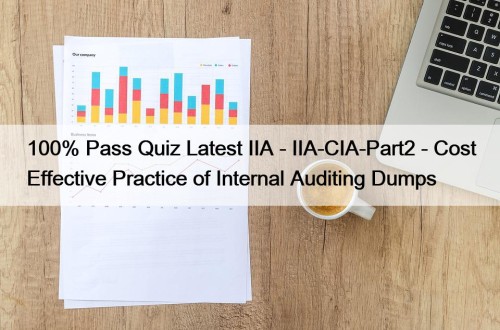Most Popular
 Free PDF Quiz CCRN-Pediatric - Critical Care Nursing Exam–High Pass-Rate Learning Materials
Free PDF Quiz CCRN-Pediatric - Critical Care Nursing Exam–High Pass-Rate Learning Materials
Our team regularly modified it to provide you with the ...
 100% Pass Quiz Latest IIA - IIA-CIA-Part2 - Cost Effective Practice of Internal Auditing Dumps
100% Pass Quiz Latest IIA - IIA-CIA-Part2 - Cost Effective Practice of Internal Auditing Dumps
BONUS!!! Download part of Pass4training IIA-CIA-Part2 dumps for free: https://drive.google.com/open?id=1cUoL1A9ciDeUwvYr5ODu6dnfvbH-Ex1dAs ...
 UiPath UiPath-ADPv1 PDF Questions
UiPath UiPath-ADPv1 PDF Questions
The pass rate is 98% for UiPath-ADPv1 exam bootcamp, if ...



Answers GDPR Free | Valid GDPR Test Camp

All the real GDPR questions are included in the PECB Certified Data Protection Officer (GDPR) PDF Dumps files. This file is compatible with smart devices. The PECB PDF Dumps files are portable and printable, allowing candidates to study and prepare for the GDPR exam from anywhere, even on smartphones, laptops, and tablets. Moreover, Pass4training regularly updates its PECB Certified Data Protection Officer (GDPR) PDF questions format to keep up with the changes in the PECB Certified Data Protection Officer (GDPR) exam content, ensuring that its PECB Certified Data Protection Officer (GDPR) exam questions are up-to-date and relevant.
In order to meet the needs of all customers that pass their exam and get related certification, the experts of our company have designed the updating system for all customers. Our GDPR exam question will be constantly updated every day. The IT experts of our company will be responsible for checking whether our GDPR exam prep is updated or not. Once our GDPR test questions are updated, our system will send the message to our customers immediately. If you use our GDPR Exam Prep, you will have the opportunity to enjoy our updating system. You will get the newest information about your exam in the shortest time. You do not need to worry about that you will miss the important information, more importantly, the updating system is free for you, so hurry to buy our GDPR exam question, you will find it is a best choice for you.
100% Pass-Rate Answers GDPR Free & Passing GDPR Exam is No More a Challenging Task
If you also want to work your way up the ladder, GDPR test guide will be the best and most suitable choice for you. If you are still hesitating whether you need to take the GDPR exam or not, you will lag behind other people. If you do not want to fall behind the competitors in the same field, you are bound to start to pay high attention to the GDPR Exam, and it is very important for you to begin to preparing for the GDPR exam right now. Just come and buy our GDPR exam questions as the pass rate is more than 98%!
PECB GDPR Exam Syllabus Topics:
| Topic | Details |
|---|---|
| Topic 1 |
|
| Topic 2 |
|
| Topic 3 |
|
| Topic 4 |
|
PECB Certified Data Protection Officer Sample Questions (Q31-Q36):
NEW QUESTION # 31
Scenario5:
Recpond is a German employment recruiting company. Their services are delivered globally and include consulting and staffing solutions. In the beginning. Recpond provided its services through an office in Germany. Today, they have grown to become one of the largest recruiting agencies,providing employment to more than 500,000 people around the world. Recpond receives most applications through its website. Job searchers are required to provide the job title and location. Then, a list of job opportunities is provided. When a job position is selected, candidates are required to provide their contact details and professional work experience records. During the process, they are informed that the information will be used only for the purposes and period determined by Recpond. Recpond's experts analyze candidates' profiles and applications and choose the candidates that are suitable for the job position. The list of the selected candidates is then delivered to Recpond's clients, who proceed with the recruitment process. Files of candidates that are not selected are stored in Recpond's databases, including the personal data of candidates who withdraw the consent on which the processing was based. When the GDPR came into force, the company was unprepared.
The top management appointed a DPO and consulted him for all data protection issues. The DPO, on the other hand, reported the progress of all data protection activities to the top management. Considering the level of sensitivity of the personal data processed by Recpond, the DPO did not have direct access to the personal data of all clients, unless the top management deemed it necessary. The DPO planned the GDPR implementation by initially analyzing the applicable GDPR requirements. Recpond, on the other hand, initiated a risk assessment to understand the risks associated with processing operations. The risk assessment was conducted based on common risks that employment recruiting companies face. After analyzing different risk scenarios, the level of risk was determined and evaluated. The results were presented to the DPO, who then decided to analyze only the risks that have a greater impact on the company. The DPO concluded that the cost required for treating most of the identified risks was higher than simply accepting them. Based on this analysis, the DPO decided to accept the actual level of the identified risks. After reviewing policies and procedures of the company. Recpond established a new data protection policy. As proposed by the DPO, the information security policy was also updated. These changes were then communicated to all employees of Recpond.Based on this scenario, answer the following question:
Question:
Recpondstores files of candidates who are not selectedin its databases,even if they withdraw consent. Is this acceptable under GDPR?
- A. No, Recpond must retain candidate data for statistical analysis but must anonymize it.
- B. Yes, the GDPR allows personal data to be processedeven after consent is withdrawnso organizations can use the data for future recruitment opportunities.
- C. Yes, the GDPR only requires the controller tostop processing the datawhen consent is withdrawn but does not require its deletion.
- D. No, the GDPR requires the controller to erase personal data if the data subject withdraws their consent for data processing.
Answer: D
NEW QUESTION # 32
Scenario3:
COR Bank is an international banking group that operates in 31 countries. It was formed as the merger of two well-known investment banks in Germany. Their two main fields of business are retail and investment banking. COR Bank provides innovative solutions for services such as payments, cash management, savings, protection insurance, and real-estate services. COR Bank has a large number of clients and transactions.
Therefore, they process large information, including clients' personal data. Some of the data from the application processes of COR Bank, including archived data, is operated by Tibko, an IT services company located in Canada. To ensure compliance with the GDPR, COR Bank and Tibko have reached a data processing agreement Based on the agreement, the purpose and conditions of data processing are determined by COR Bank. However, Tibko is allowed to make technical decisions for storing the data based on its own expertise. COR Bank aims to remain a trustworthy bank and a long-term partner for its clients. Therefore, they devote special attention to legal compliance. They started the implementation process of a GDPR compliance program in 2018. The first step was to analyze the existing resources and procedures. Lisa was appointed as the data protection officer (DPO). Being the information security manager of COR Bank for many years, Lisa had knowledge of theorganization's core activities. She was previously involved in most of the processes related to information systems management and data protection. Lisa played a key role in achieving compliance to the GDPR by advising the company regarding data protection obligations and creating a data protection strategy. After obtaining evidence of the existing data protection policy, Lisa proposed to adapt the policy to specific requirements of GDPR. Then, Lisa implemented the updates of the policy within COR Bank. To ensure consistency between processes of different departments within the organization, Lisa has constantly communicated with all heads of GDPR. Then, Lisa implemented the updates of the policy within COR Bank. To ensure consistency between processes of different departments within the organization, Lisa has constantly communicated with all heads of departments. As the DPO, she had access to several departments, including HR and Accounting Department. This assured the organization that there was a continuous cooperation between them. The activities of some departments within COR Bank are closely related to data protection. Therefore, considering their expertise, Lisa was advised from the top management to take orders from the heads of those departments when taking decisions related to their field. Based on this scenario, answer the following question:
Question:
Lisa implemented the updates to the data protection policy. Is she responsible for this under GDPR?
- A. No, the DPO is only responsible for proposing changes and obtaining evidence regarding specific GDPR requirements in the policy.
- B. Yes, the DPO is responsible for implementing GDPR policies, procedures, and processes, as well as ensuring compliance.
- C. No, the DPO is responsible for monitoring compliance with GDPR butnotfor implementing the GDPR compliance policies.
- D. Yes, the DPO is responsible for all security-related tasks, including updating GDPR policies.
Answer: C
Explanation:
UnderArticle 39(1)(b) of GDPR, theDPO's role is advisory-they monitor compliancebut donot actively implement policies.
* Option B is correctbecauseDPOs advise and monitor but do not execute policy updates.
* Option A is incorrectbecauseDPOs do more than just propose changes; they ensure compliance.
* Option C is incorrectbecause implementationis the responsibility of the controller, not the DPO.
* Option D is incorrectbecauseDPOs do not handle general security responsibilities.
References:
* GDPR Article 39(1)(b)(DPO's monitoring role)
* Recital 97(DPO's independence and advisory function)
NEW QUESTION # 33
Question:
According to theprinciple of data minimization, data must be:
- A. Adequate, relevant, and limitedto what is necessary in relation to the purposes of processing.
- B. Acquired only forspecified, explicit, and legitimate purposes.
- C. In a formwhich permits the identification of data subjectsfor no longer than is necessary.
- D. Stored forno more than five yearsfrom the date of collection.
Answer: A
Explanation:
UnderArticle 5(1)(c) of GDPR, data minimization requires thatpersonal data must be adequate, relevant, and limited to what is necessaryfor its intended purpose.
* Option C is correctbecause itdirectly reflects the GDPR's data minimization principle.
* Option A is incorrectbecausestorage limitation is a separate principle under Article 5(1)(e).
* Option B is incorrectbecausepurpose limitation (Article 5(1)(b)) is separate from data minimization.
* Option D is incorrectbecauseGDPR does not specify a fixed retention period (e.g., five years)- retention should be based on necessity.
References:
* GDPR Article 5(1)(c)(Data minimization principle)
* Recital 39(Controllers must collect only necessary data)
NEW QUESTION # 34
Scenario1:
MED is a healthcare provider located in Norway. It provides high-quality and affordable healthcare services, including disease prevention, diagnosis, and treatment. Founded in 1995, MED is one of the largest health organizations in the private sector. The company has constantly evolved in response to patients' needs.
Patients that schedule an appointment in MED's medical centers initially need to provide their personal information, including name, surname, address, phone number, and date of birth. Further checkups or admission require additional information, including previous medical history and genetic data. When providing their personal data, patients are informed that the data is used for personalizing treatments and improving communication with MED's doctors. Medical data of patients, including children, are stored in the database of MED's health information system. MED allows patients who are at least 16 years old to use the system and provide their personal information independently. For children below the age of 16, MED requires consent from the holder of parental responsibility before processing their data.
MED uses a cloud-based application that allows patients and doctors to upload and access information.
Patients can save all personal medical data, including test results, doctor visits, diagnosis history, and medicine prescriptions, as well as review and track them at any time. Doctors, on the other hand, can access their patients' data through the application and can add information as needed.
Patients who decide to continue their treatment at another health institution can request MED to transfer their data. However, even if patients decide to continue their treatment elsewhere, their personal data is still used by MED. Patients' requests to stop data processing are rejected. This decision was made by MED's top management to retain the information of everyone registered in their databases.
The company also shares medical data with InsHealth, a health insurance company. MED's data helps InsHealth create health insurance plans that meet the needs of individuals and families.
MED believes that it is its responsibility to ensure the security and accuracy of patients' personal data. Based on the identified risks associated with data processing activities, MED has implemented appropriate security measures to ensure that data is securely stored and processed.
Since personal data of patients is stored and transmitted over the internet, MED uses encryption to avoid unauthorized processing, accidental loss, or destruction of data. The company has established a security policy to define the levels of protection required for each type of information and processing activity. MED has communicated the policy and other procedures to personnel and provided customized training to ensure proper handling of data processing.
Question:
If a patient requests MED to permanently erase their data, MED should:
- A. Erase the personal data only if required to comply with a legal obligation.
- B. Erase the personal data if it is no longer needed for its original purpose.
- C. Reject the request since the medical history of patients cannot be permanently erased.
- D. Refuse the request because medical data must be retained indefinitely for future reference.
Answer: B
Explanation:
Under Article 17 of theGeneral Data Protection Regulation (GDPR), also known as the "Right to be Forgotten," data subjects have the right to request the erasure of their personal data when:
* The data is no longer necessary for the purpose for which it was collected.
* The data subject withdraws consent (where processing was based on consent).
* The data was processed unlawfully.
In this scenario, if the data is no longer necessary for the original purpose (e.g., if the patient has completed their treatment and there are no legal retention obligations), MED should erase the data. However, there are exceptions under GDPR, such as legal retention requirements for medical records under national healthcare regulations.
Rejecting the request outright (Option A) is incorrect because GDPR requires controllers to assess whether retention is still necessary. Similarly,Option Cis too restrictive because GDPR allows deletion even if no legal obligation mandates it.Option Dis incorrect because indefinite retention is not permitted unless a valid justification exists.
References:
* GDPR Article 17(Right to Erasure)
* Recital 65(Clarification on when personal data can be erased)
* Article 5(1)(e)(Storage limitation principle)
NEW QUESTION # 35
Scenario:
An organization has been using astorage transfer serviceto importmarket-sensitive data, includingemail addresses and contact details, into acloud storage system. This change has affected theregistration process and has helped the organizationappropriately collect and store data.
Question:
Based on this scenario, what should theDPO monitorin the data processing register?
- A. Whether the changes have beenreflected in the data processing registers.
- B. Whether the organization hasidentified storage transfer service's technical and organizational measuresfor protection of personal data.
- C. Whether the organization hasnotified the supervisory authorityabout the change in storage methods.
- D. Whether the organization hasobtained consentfrom the data subjects for this change.
Answer: A
Explanation:
UnderArticle 30 of GDPR, controllers and processorsmust maintain a record of processing activities (ROPA). Whenever changes occurin the way personal data is processed(such as a transfer to cloud storage), theDPO must ensure these changes are recorded in the processing register.
* Option B is correctbecause theDPO must ensure the data processing register is updated to reflect the new storage method.
* Option A is incorrectbecausestorage changes do not require new consent unless the purpose of processing has changed.
* Option C is incorrectbecause whileassessing security measures is important, it is not theprimary dutyrelated to the data processing register.
* Option D is incorrectbecausenot all processing changes require notifying the supervisory authority unless they introduce high riskswithout proper safeguards.
References:
* GDPR Article 30(1)(g)(Controllers must maintain updated processing records)
* Recital 82(Controllers should document changes in processing activities)
NEW QUESTION # 36
......
As we always want to do better in this career, our research center has formed a group of professional experts responsible for researching new technology of the GDPR study materials. The technology of the GDPR practice prep will be innovated every once in a while. As you can see, we never stop innovating new version of the GDPR Exam Questions. We really need your strong support. We always adopt the kind and useful advices of our loyal customers who wrote to us and gave us their opinions on their study.
Valid GDPR Test Camp: https://www.pass4training.com/GDPR-pass-exam-training.html
- Take Your PECB GDPR Exam with Preparation Material Available in Three Formats 🩲 Search for 《 GDPR 》 and download it for free on 「 www.prep4pass.com 」 website 🎸Reliable GDPR Test Prep
- GDPR Valid Test Discount 📪 Valid Test GDPR Format 🚅 Actual GDPR Test Answers 🐉 Search for [ GDPR ] on ⮆ www.pdfvce.com ⮄ immediately to obtain a free download 💏Hot GDPR Spot Questions
- New GDPR Test Experience 😁 GDPR Test Practice 🤴 GDPR Test Practice 🤿 Search for ➽ GDPR 🢪 and obtain a free download on ⏩ www.torrentvalid.com ⏪ ⛽GDPR Intereactive Testing Engine
- Quiz 2025 Professional PECB GDPR: Answers PECB Certified Data Protection Officer Free 📘 Open ☀ www.pdfvce.com ️☀️ enter ➥ GDPR 🡄 and obtain a free download ⏫GDPR Latest Test Online
- Take Your PECB GDPR Exam with Preparation Material Available in Three Formats ☝ Search for ➤ GDPR ⮘ and download it for free on ☀ www.pass4leader.com ️☀️ website 🐊Sample GDPR Questions
- Quiz 2025 PECB Unparalleled GDPR: Answers PECB Certified Data Protection Officer Free ➿ Search for ⇛ GDPR ⇚ and download it for free on ➡ www.pdfvce.com ️⬅️ website 🏙GDPR Valid Study Materials
- Valid GDPR Exam Fee 🍥 Answers GDPR Free 🐞 GDPR Certification Exam Cost 🐇 Search for ➥ GDPR 🡄 and obtain a free download on ➠ www.free4dump.com 🠰 ⤵Exam GDPR Course
- Valid Test GDPR Format 🥯 Answers GDPR Free 🛅 GDPR Reliable Cram Materials 🚶 Go to website ☀ www.pdfvce.com ️☀️ open and search for ( GDPR ) to download for free ↘GDPR Latest Test Online
- PECB Certified Data Protection Officer exam questions - GDPR torrent vce - PECB Certified Data Protection Officer pdf dumps 🕉 Search for 「 GDPR 」 and download it for free on ➠ www.prep4pass.com 🠰 website 🤠GDPR Reliable Cram Materials
- GDPR Reliable Cram Materials ☎ GDPR Test Practice 🤾 Exam GDPR Course 🐭 Immediately open ▶ www.pdfvce.com ◀ and search for ➥ GDPR 🡄 to obtain a free download ❤️Valid Test GDPR Format
- GDPR Certification Exam 🧞 Actual GDPR Test Answers 👑 GDPR Latest Test Online 🍊 Copy URL ( www.examcollectionpass.com ) open and search for ⇛ GDPR ⇚ to download for free 🚀Valid GDPR Exam Fee
- GDPR Exam Questions
- histogram.online studysmart.com.ng edu.chaulerbazar.com libict.org chriski438.blogripley.com sbacademy.online academy-climax.com karimichemland.ir www.so0912.com dentaleducation.in
Tags: Answers GDPR Free, Valid GDPR Test Camp, GDPR Braindumps Torrent, GDPR Reliable Test Sample, New GDPR Test Papers